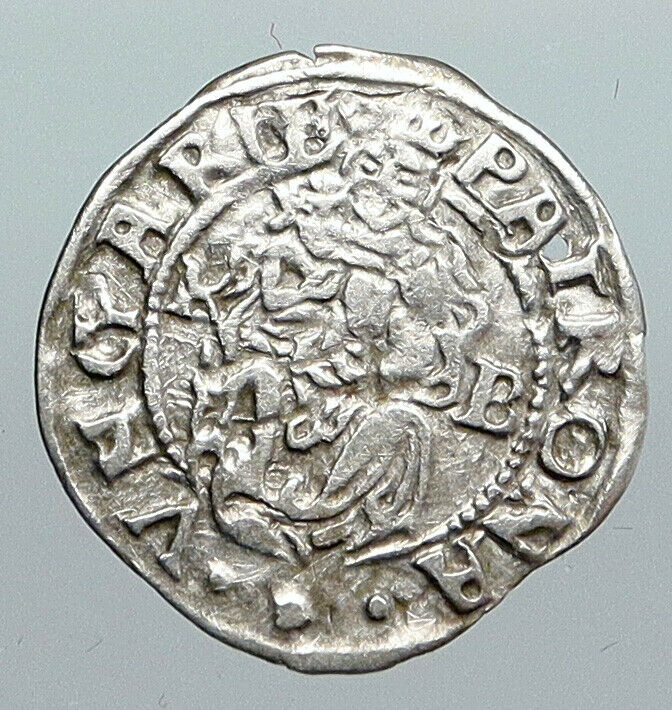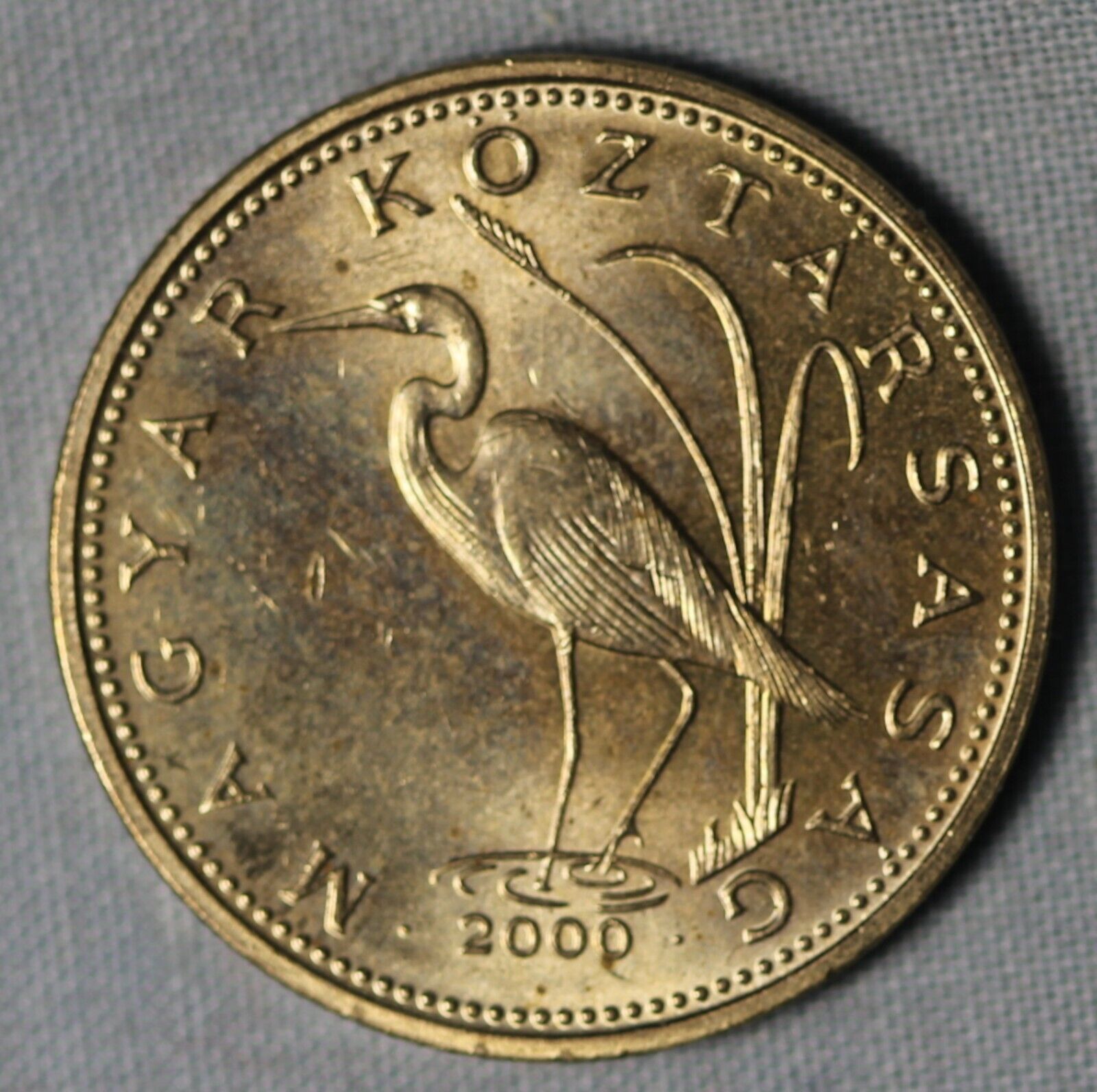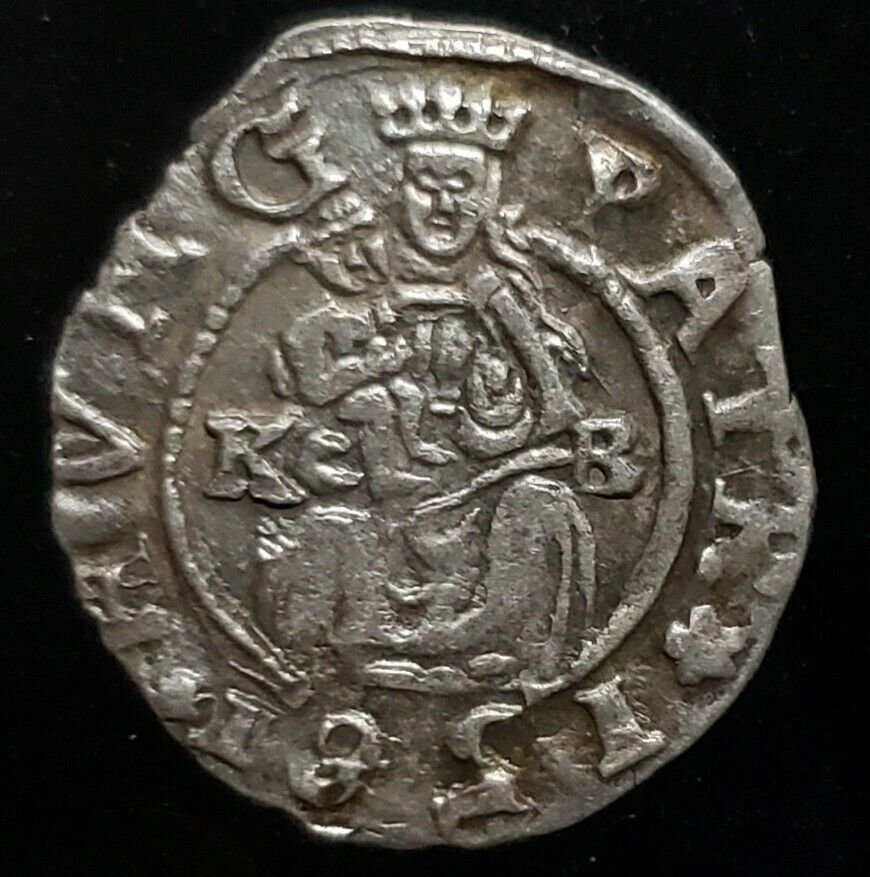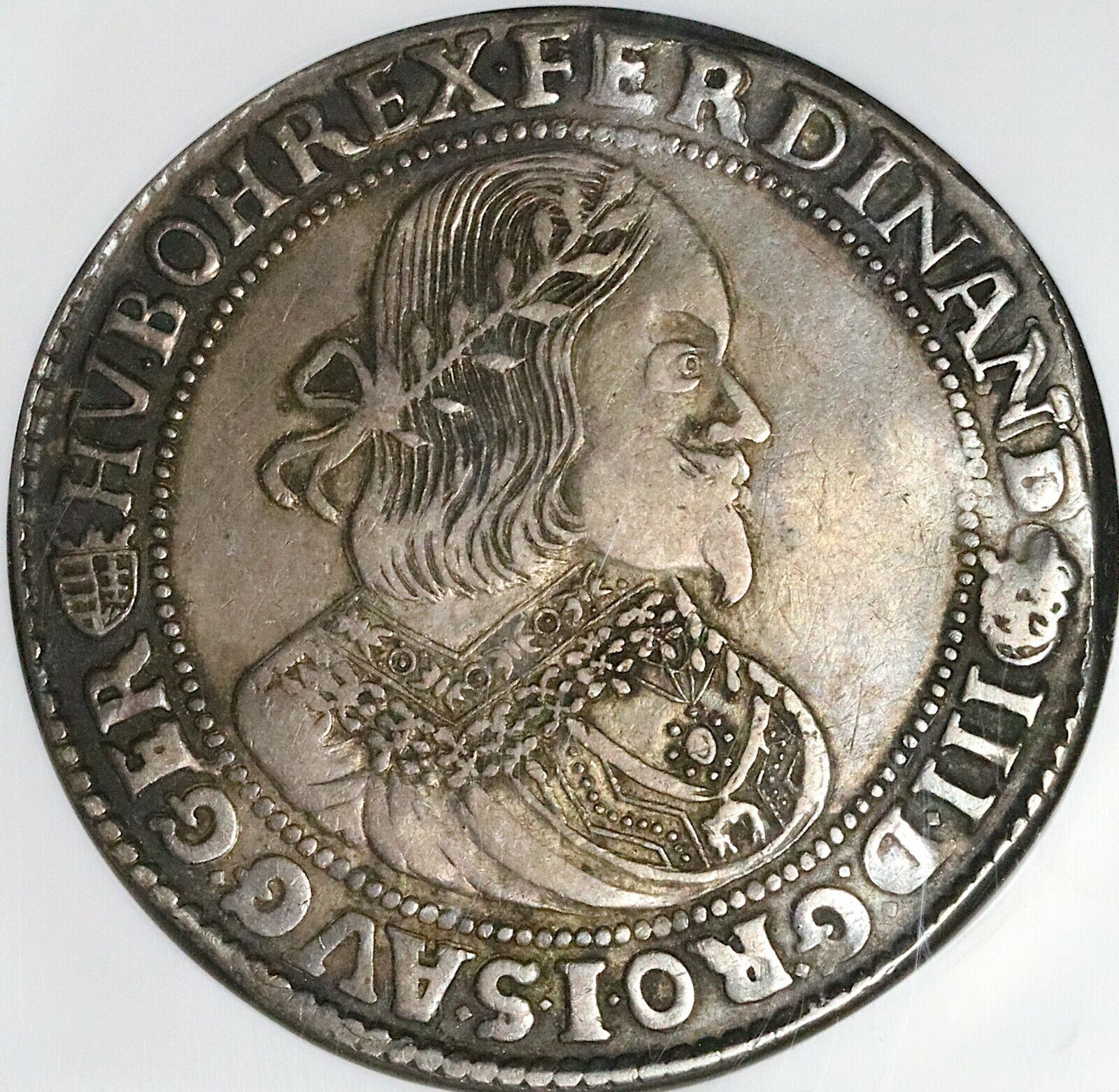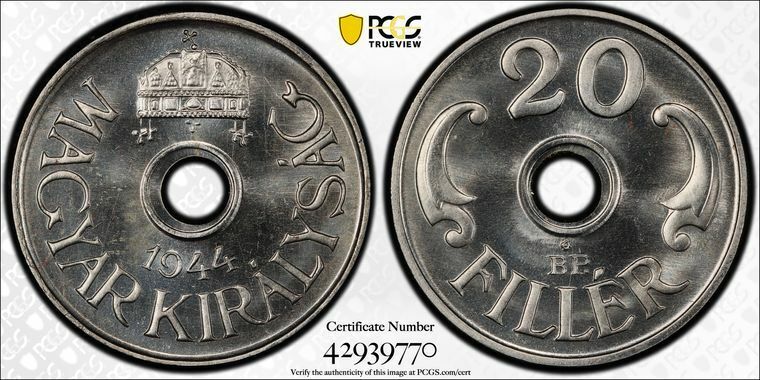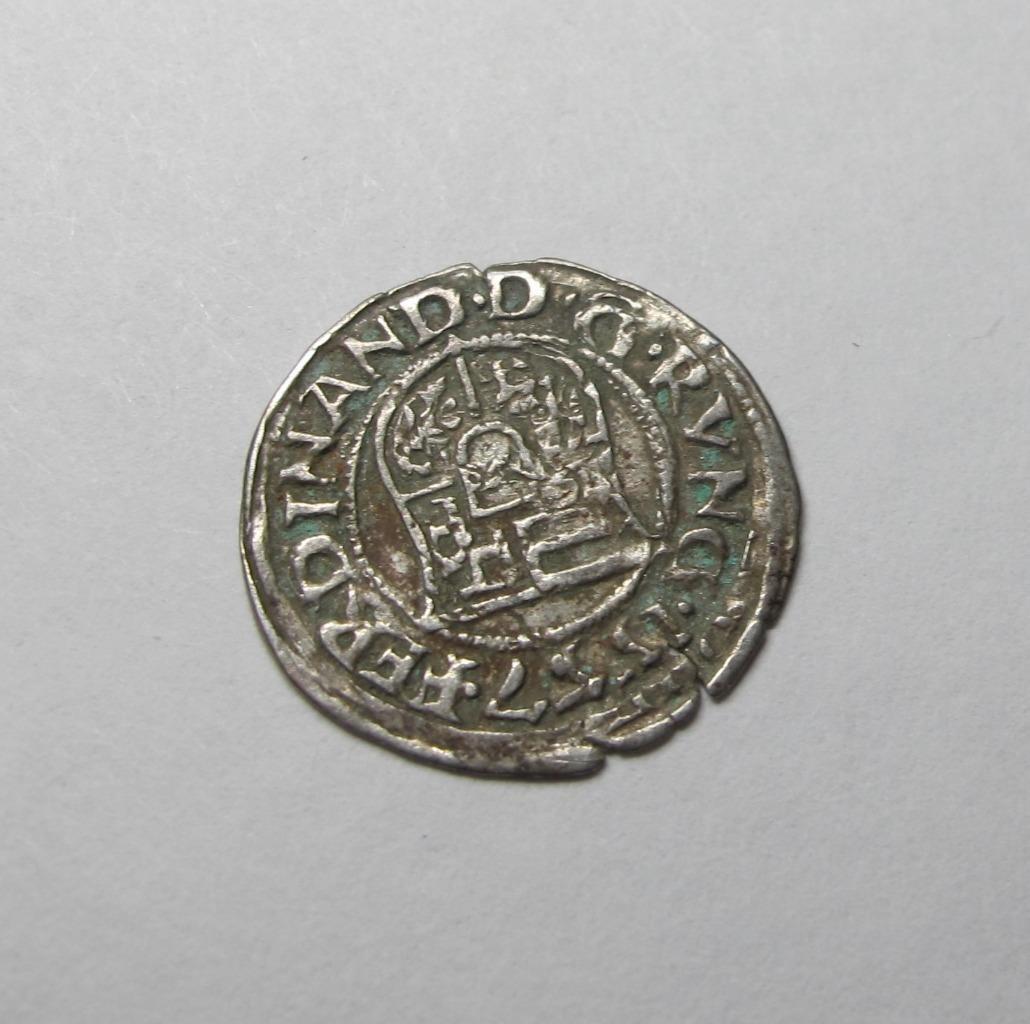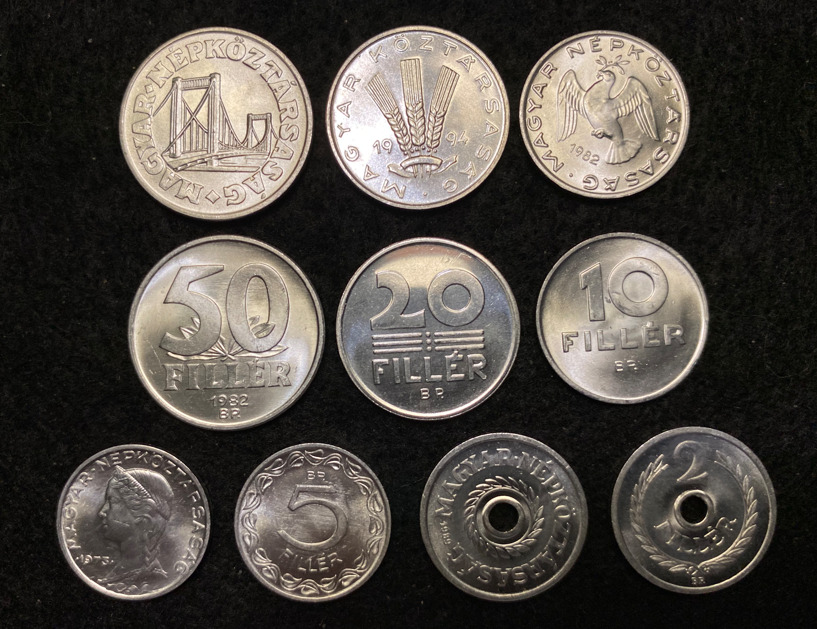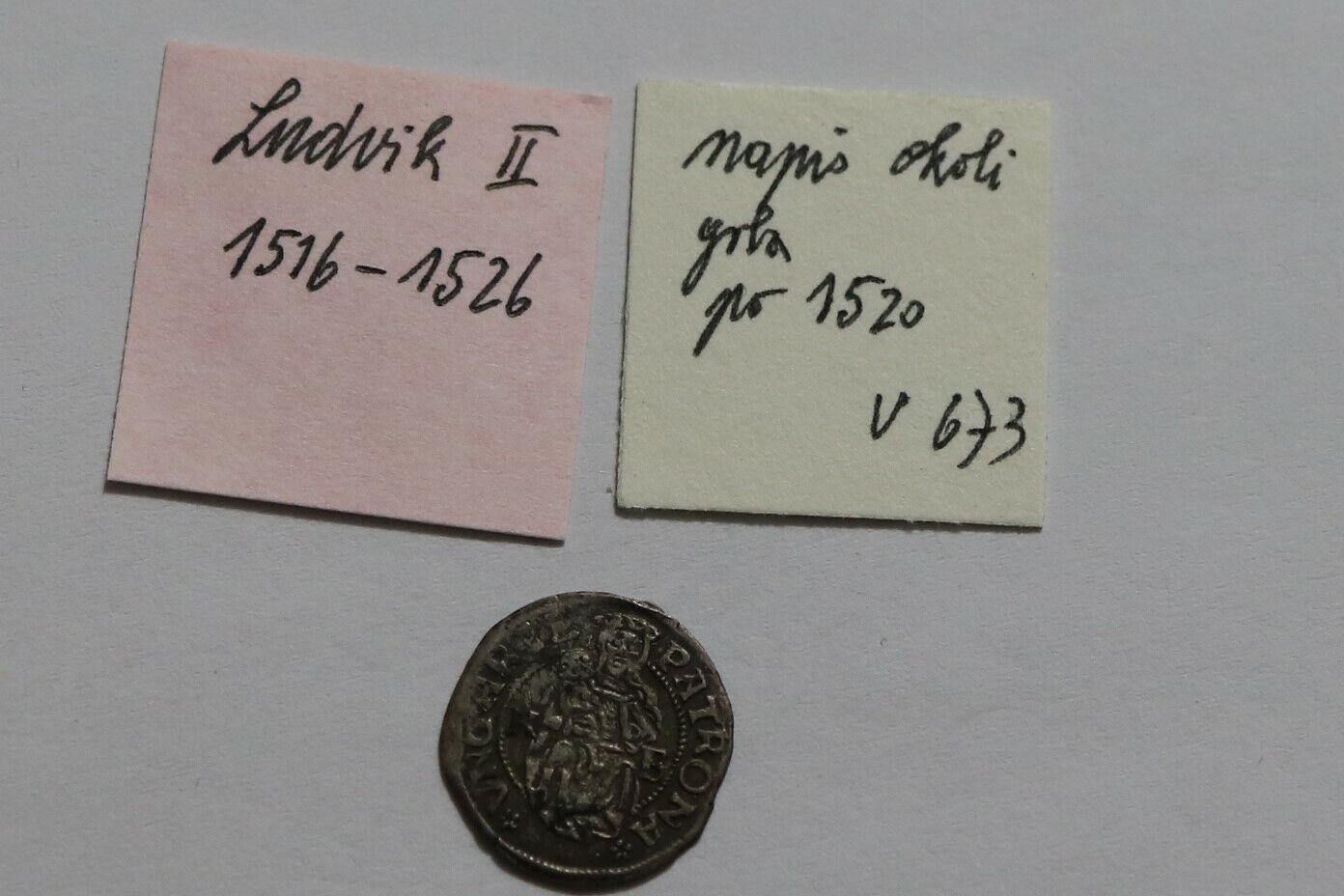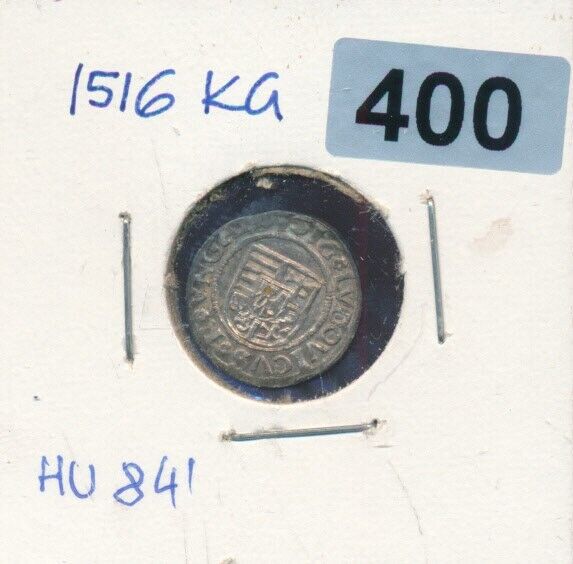-40%
1561 HUNGARY King Ferdinand MADONNA & CHILD ANTIQUE Old Silver Denar Coin i90551
$ 189.36
- Description
- Size Guide
Description
Item:i90551
Authentic Coin of:
Hungary
under Ferdinand I - Holy Roman Emperor - 27 August 1556 - 25 July 1564
1561
Silver Denar 16mm (
0.39
grams) 0.500 Silver
Reference: ÉH# 748, H# 936, H# 951 (1559-65)
FER · D · G · E · R · O · I · S · AV · GE · HV · B · R ·, Fourfold curved coat of arms: Hungarian Árpád stripes, Hungarian double cross, Dalmatian leopard heads, Bohemian lion; in center chest shield Austrian bonds.
PATRONA · * · VNGARIE K B, Crowned Madonna with child in right arm.
You are bidding on the exact item pictured, provided with a Certificate of Authenticity and Lifetime Guarantee of Authenticity.
Ferdinand I
(Spanish:
Fernando I
) (10 March 1503 - 25 July 1564) was Holy Roman Emperor from 1556, king of Bohemia and Royal Hungary from 1526, and king of Croatia from 1527 until his death in 1564. Before his accession, he ruled the Austrian hereditary lands of the Habsburgs in the name of his elder brother, Charles V, Holy Roman Emperor. Also, he often served as Charles' representative in Germany and developed encouraging relationships with German princes.
The key events during his reign were the contest with the Ottoman Empire, which in the 1520s began a great advance into Central Europe, and the Protestant Reformation, which resulted in several wars of religion. Ferdinand was able to defend his realm and make it somewhat more cohesive, but he could not conquer the major part of Hungary. His flexible approach to Imperial problems, mainly religious, finally brought more result than the more confrontational attitude of his brother.
Ferdinand's motto was
Fiat iustitia, et pereat mundus
: "Let justice be done, though the world perish".
Ferdinand was born in Alcalá de Henares, Spain, the second son of Queen Joanna I of Castile from the House of Trastámara (herself the daughter of the Catholic Monarchs Isabel I of Castile and Ferdinand of Aragon) and Habsburg Archduke Philip the Handsome, who was heir to Maximilian I, Holy Roman Emperor. Ferdinand shared his customs, culture, name, and even his birthday with his maternal grandfather Ferdinand II of Aragon. He was born, raised, and educated in Spain, and did not learn German when he was young.
In the summer of 1518 Ferdinand was sent to Flanders following his brother Charles's arrival in Spain as newly appointed King Charles I the previous autumn. Ferdinand returned in command of his brother's fleet but en route was blown off-course and spent four days in Kinsale in Ireland before reaching his destination. With the death of his grandfather Maximilian I and the accession of his now 19-year-old brother, Charles V, to title of Holy Roman Emperor in 1519, Ferdinand was entrusted with the government of the Austrian hereditary lands, roughly modern-day Austria and Slovenia. He was Archduke of Austria from 1521 to 1564. Though he supported his brother, Ferdinand also managed to strengthen his own realm. By adopting the German language and culture late in his life, he also grew close to the German territorial princes.
After the death of his brother-in-law Louis II, Ferdinand ruled as King of Bohemia and Hungary (1526-1564). Ferdinand also served as his brother's deputy in the Holy Roman Empire during his brother's many absences, and in 1531 was elected King of the Romans, making him Charles's designated heir in the empire. Charles abdicated in 1556 and Ferdinand adopted the title "Emperor elect", with the ratification of the Imperial diet taking place in 1558, while Spain, the Spanish Empire, Naples, Sicily, Milan, the Netherlands, and Franche-Comté went to Philip, son of Charles.
A
Madonna
is a representation of Mary, either alone or with her child Jesus. These images are central icons for both the Catholic and Orthodox churches. The word is from Italian
ma donna
, meaning 'my lady'. The
Madonna and Child
type is very prevalent in Christian iconography, divided into many traditional subtypes especially in Eastern Orthodox iconography, often known after the location of a notable icon of the type, such as the
Theotokos of Vladimir
,
Agiosoritissa
,
Blachernitissa
, etc., or descriptive of the depicted posture, as in
Hodegetria
,
Eleusa
, etc.
The term
Madonna
in the sense of "picture or statue of the Virgin Mary" enters English usage in the 17th century, primarily in reference to works of the Italian Renaissance. In an Eastern Orthodox context, such images are typically known as
Theotokos
. "Madonna" may be generally used of representations of Mary, with or without the infant Jesus, is the focus and central figure of the image, possibly flanked or surrounded by angels or saints. Other types of Marian imagery have a narrative context, depicting scenes from the
Life of the Virgin
, e.g. the
Annunciation to Mary
, are not typically called "Madonna".
The earliest depictions of Mary date still to Early Christianity (2nd to 3rd centuries), found in the Catacombs of Rome. These are in a narrative context. The classical "Madonna" or "Theotokos" imagery develops from the 5th century, as Marian devotion rose to great importance after the Council of Ephesus formally affirmed her status as "Mother of God or
Theotokos
("God-bearer") in 431. The
Theotokos
iconography as it developed in the 6th to 8th century rose to great importance in the high medieval period (12th to 14th centuries) both in the Eastern Orthodox and in the Latin spheres. According to a tradition recorded in the 8th century, Marian iconography goes back to a portrait drawn from life by Luke the Evangelist, with a number of icons (such as the
Panagia Portaitissa
) claimed to either represent this original icon or to be a direct copy of it. In the Western tradition, depictions of the Madonna were greatly diversified by Renaissance masters such as Duccio, Leonardo da Vinci, Michelangelo, Raphael, Giovanni Bellini, Caravaggio and Rubens (and further by certain modernists, such as Salvador Dalí and Henry Moore) while Eastern Orthodox iconography adheres more closely to the inherited traditional types.
Hungary
is a sovereign state in Europe. It is situated in the Carpathian Basin and is bordered by Slovakia to the north, Romania to the east, Serbia to the south, Croatia to the southwest, Slovenia to the west, Austria to the northwest, and Ukraine to the northeast. The country's capital and largest city is Budapest. Hungary is a member of the European Union, NATO, the OECD, the Visegrád Group, and the Schengen Area. The official language is Hungarian, which is the most widely spoken non-Indo-European language in Europe.
Following centuries of successive habitation by Celts, Romans, Huns, Slavs, Gepids, and Avars, the foundation of Hungary was laid in the late 9th century by the Hungarian grand prince Árpád in the
Honfoglalás
("homeland-conquest"). His great-grandson Stephen I ascended to the throne in 1000 CE, converting the country to a Christian kingdom. By the 12th century, Hungary became a middle power within the Western world, reaching a golden age by the 15th century. Following the Battle of Mohács in 1526 and about 150 years of partial Ottoman occupation (1541-1699), Hungary came under Habsburg rule, and later formed a significant part of the Austro-Hungarian Empire (1867-1918).
Hungary's current borders were first established by the Treaty of Trianon (1920) after World War I, when the country lost 71% of its territory, 58% of its population, and 32% of ethnic Hungarians. Following the interwar period, Hungary joined the Axis Powers in World War II, suffering significant damage and casualties. Hungary came under the influence of the Soviet Union, which contributed to the establishment of a four-decade-long communist dictatorship (1947-1989). The country gained widespread international attention regarding the Revolution of 1956 and the seminal opening of its previously-restricted border with Austria in 1989, which accelerated the collapse of the Eastern Bloc.
On 23 October 1989, Hungary again became a democratic parliamentary republic, and today has a high-income economy with a very high Human Development Index. Hungary is a popular tourist destination attracting 10.675 million tourists a year (2013). It is home to the largest thermal water cave system and the second-largest thermal lake in the world (Lake Hévíz), the largest lake in Central Europe (Lake Balaton), and the largest natural grasslands in Europe (the Hortobágy National Park).
Frequently Asked Questions
Mr. Ilya Zlobin
, world-renowned expert numismatist, enthusiast, author and dealer in authentic ancient Greek, ancient Roman, ancient Byzantine, world coins & more.
Who am I dealing with?
You are dealing with Ilya Zlobin, ancient coin expert, enthusiast, author and dealer with an online store having a selection of over 15,000 items with great positive feedback from verified buyers and over 10 years experience dealing with over 57,000 ancient and world coins and artifacts. Ilya Zlobin is an independent individual who has a passion for coin collecting, research and understanding the importance of the historical context and significance all coins and objects represent. Most others are only concerned with selling you, Ilya Zlobin is most interested in educating you on the subject, and providing the largest selection, most professional presentation and service for the best long-term value for collectors worldwide creating returning patrons sharing in the passion of ancient and world coin collecting for a lifetime.
How long until my order is shipped?
Orders are shipped by the next business day (after receipt of payment) most of the time.
How will I know when the order was shipped?
After your order has shipped, you will be left positive feedback, and that date could be used as a basis of estimating an arrival date. Any tracking number would be found under your 'Purchase history' tab.
USPS First Class mail takes about 3-5 business days to arrive in the U.S. International shipping times cannot be estimated as they vary from country to country.
Standard international mail to many countries
does not
include a tracking number, and can also be slow sometimes.
For a tracking number and signature confirmation, you may want to do Express Mail International Shipping, which costs more, however, is the fastest and most secure. Additionally you may be able to receive your order in as little as 3-5 business days using this method. For Express Mail International, it may be possible to place up to 10-15 items in one package (for the one shipping cost) as it is flat rate envelope, which may be the most cost-effective, secure and fastest way to receive items internationally. Send me a message about this and I can update your invoice should you want this method.
Getting your order to you, quickly and securely is a top priority and is taken seriously here.
Great care is taken in packaging and mailing every item securely and quickly.
Please be aware, I cannot take responsibility for any postal service delivery delays, especially for international packages as it may happen in rare instances.
What is a certificate of authenticity and what guarantees do you give that the item is authentic?
Each of the items sold here, is provided with a Certificate of Authenticity, and a Lifetime Guarantee of Authenticity, issued by a world-renowned numismatic and antique expert that has identified over 57,000 ancient coins and has provided them with the same guarantee. You will be very happy with what you get with the COA; a professional presentation of the coin, with all of the relevant information and a picture of the coin you saw in the listing. Additionally, the coin is inside it's own protective coin flip (holder), with a 2x2 inch description of the coin matching the individual number on the COA.
On the free-market such a presentation alone, can be considered a - value all in itself, and it comes standard with your purchases from me,
FREE.
With every purchase, you are leveraging my many years of experience to get a more complete context and understanding of the piece of history you are getting. Whether your goal is to collect or give the item as a gift, coins presented like this could be more prized and valued higher than items that were not given such care and attention to.
Buy a coin today and own a piece of history, guaranteed.
Is there a money back guarantee?
I offer a 30 day unconditional money back guarantee. I stand behind my coins and would be willing to exchange your order for either store credit towards other coins, or refund, minus shipping expenses, within 30 days from the receipt of your order. My goal is to have the returning customers for a lifetime, and I am so sure in my coins, their authenticity, numismatic value and beauty, I can offer such a guarantee.
When should I leave feedback?
Once you receive your order, please leave a positive feedback. Please don't leave any negative feedbacks, as it happens sometimes that people rush to leave feedback before letting sufficient time for their order to arrive. Also, if you sent an email, make sure to check for my reply in your messages before claiming that you didn't receive a response. The matter of fact is that any issues can be resolved, as reputation is most important to me. My goal is to provide superior products and quality of service.
How and where do I learn more about collecting ancient coins?
Visit the "
Guide on How to Use My Store
" for on an overview about using my store, with additional information and links to all other parts of my store which may include educational information on topics you are looking for.
